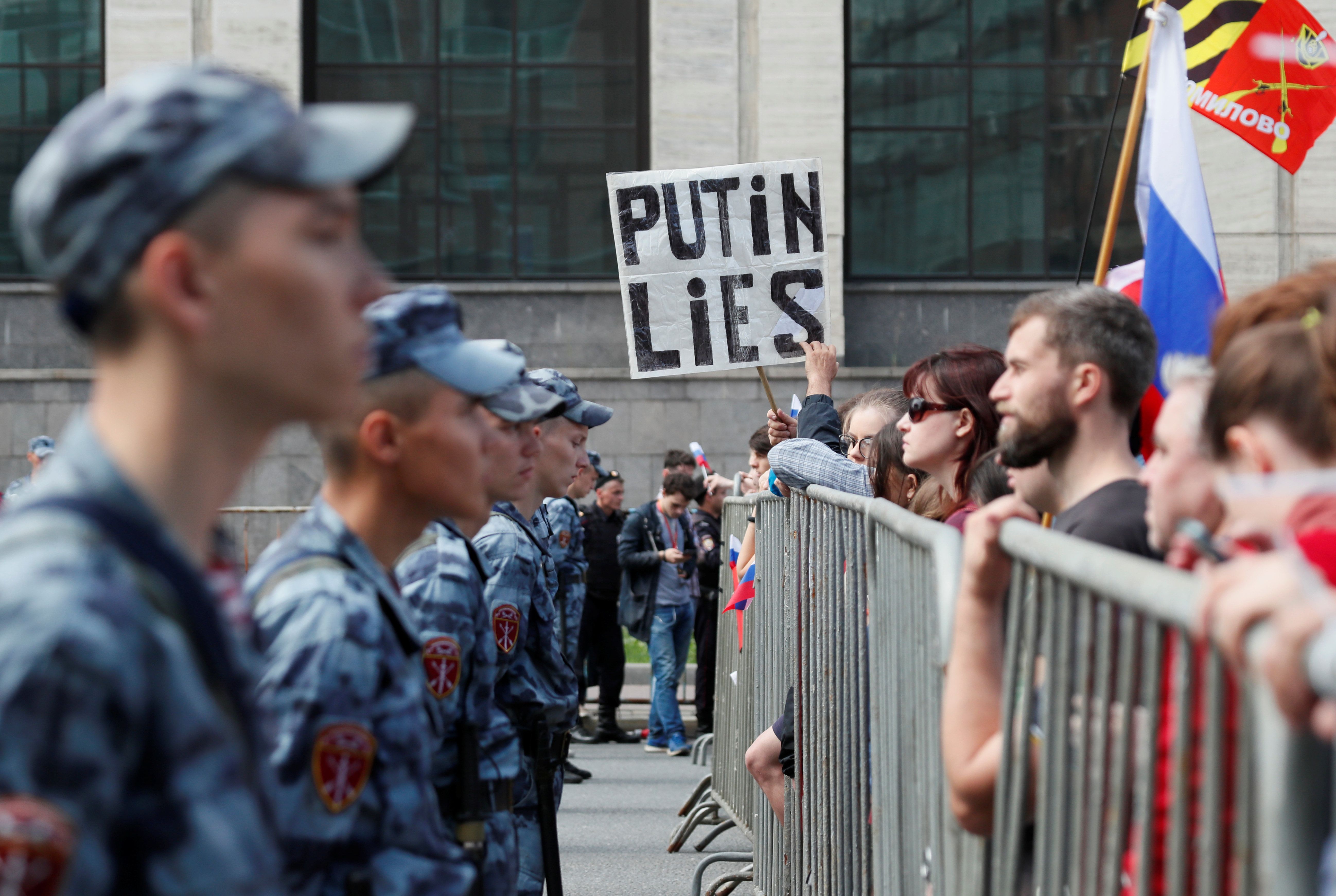What We're Watching: Moscow Streets, Ukraine's Fresh Start, Hong Kong Thugs
Moscow's Streets – More than 20,000 Russians hit the streets of Moscow last weekend to protest the exclusion of opposition candidates from city elections scheduled for September. Organizers say that, unless their candidates are allowed to stand, they'll be back in bigger numbers next Saturday. Russian protests may become an increasingly common occurrence: A recent poll from Moscow's Levada Center finds that more Russians are willing to hit the streets to shake their fists.
Ukraine's Transformation – Next door, Ukraine's political makeover is now complete. In April, 73 percent of voters, the highest turnout in the country's brief democratic history, chose comedian Volodymyr Zelensky as their president. On Sunday, voters gave his party, Servant of the People, a majority of seats in parliament, something no post-Soviet party in Ukraine has ever managed. What's more, nearly three-quarters of Ukraine's lawmakers will be first-time members. The new president and his party have a mandate to change the country. Now all they have to do now is manage relations with a giant and aggressive eastern neighbor, find a way to end a separatist insurgency in the Donbass, and uproot the corruption that bleeds the country's economy, undermines relations with international lenders, and blocks Ukraine's path forward. Onwards!
Gangs of Hong Kong – Gangs of club-wielding men in masks left Hong Kong shaken on Sunday night after they beat up a number of people who were returning from pro-democracy rallies. Reports say the men in white shirts were members of the Triads – a vicious transnational organized crime group. The organized attacks -- and reports that the police stood by and did nothing -- have fanned popular anger. At the same time, protesters took more direct aim at Beijing's control over the territory, vandalizing the mainland's liaison office with independence slogans. All of this will inflame an already tense situation between Hong Kong executive Carrie Lam's government and an increasingly vocal opposition.
What We're Ignoring
Jair Bolsonaro's beef with his own scientists – Brazilian President Jair Bolsonaro lashed out at his country's space agency last Friday, accusing it of "lies" after it published data showing that the pace of Amazon deforestation picked up in May and June. We're ignoring the president's accusation—though never the Amazon—for two reasons: First, the data are hardly a surprise, since Bolsonaro campaigned on reducing protections on the rainforest to make life easier for farmers who clear-cut trees to provide grazing land for livestock. Second, the study by space agency INPE was based on satellite images and has been backed up by the Brazilian Academy of Sciences.
